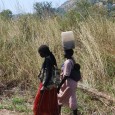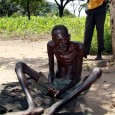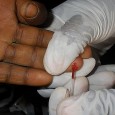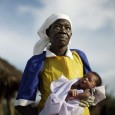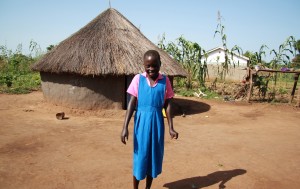 Impoverished South Sudanese children in Uganda often become slaves to their new “families.” Some, especially the girls, are sexually or physically abused, and all of them are expected to work hard.
Impoverished South Sudanese children in Uganda often become slaves to their new “families.” Some, especially the girls, are sexually or physically abused, and all of them are expected to work hard.
Polly’s story is unique. In fact, it is common for South Sudanese refugees to live as squatters in slums in the outskirts of Kampala, Uganda, often homeless. More than 1,000 children, most of them girls, have become “impoverished children” or “independent orphan children.”
Their parents, too poor to feed, and educate their children, send them to live with families in better economic situations, much as Margaret’s did in recent months, hoping they’ll receive a better life and even an education. But often their children become slaves to the new “families.” Some, especially girls, are sexually or physically abused, and all of them are expected to work hard. They are the first to rise in the morning and the last to go to sleep at night – sometimes on a scrap of cardboard outside, like a dog.
They must cook breakfast for the family, clean the house, and help with the children. Several times a day they have to fetch fresh water for the family, a task that can take hours. Little girls and boys balancing jugs of water almost as large as they can be seen walking down the dusty streets of on the outskirt of Kampala. Their salaries are food and a place to sleep.
The host families, not wanting to spend money on these impoverished children, don’t let them go to school. In Uganda, even “free” public school costs money since there fees for books and uniforms each year. Without an education these children grow up illiterate and virtually unemployable, with no hope of changing their situation. Instead they must continue living as virtual slaves or run away to escape the abusive treatment. Those who run away have nowhere to turn, especially since they have no skills to secure a job and cannot even read or write. They are forced to live on the streets where they continue to suffer abuse and hardship. Many depends on the kindness of strangers to get food, while others resort to stealing. Some teenage girls are even forced to grant sexual favors in exchange for food.
Without help, these children are doomed to a life of poverty and sadness. But there is hope, and it begins with providing these impoverished children an education that will help break the vicious cycle of poverty that dominates their lives.
Our partner Inovati has paid a year school fees for Margaret N. Achan, Polly Amitto, Christine Anyero, Lee Ben Ibo, and Saterina Lakang.

